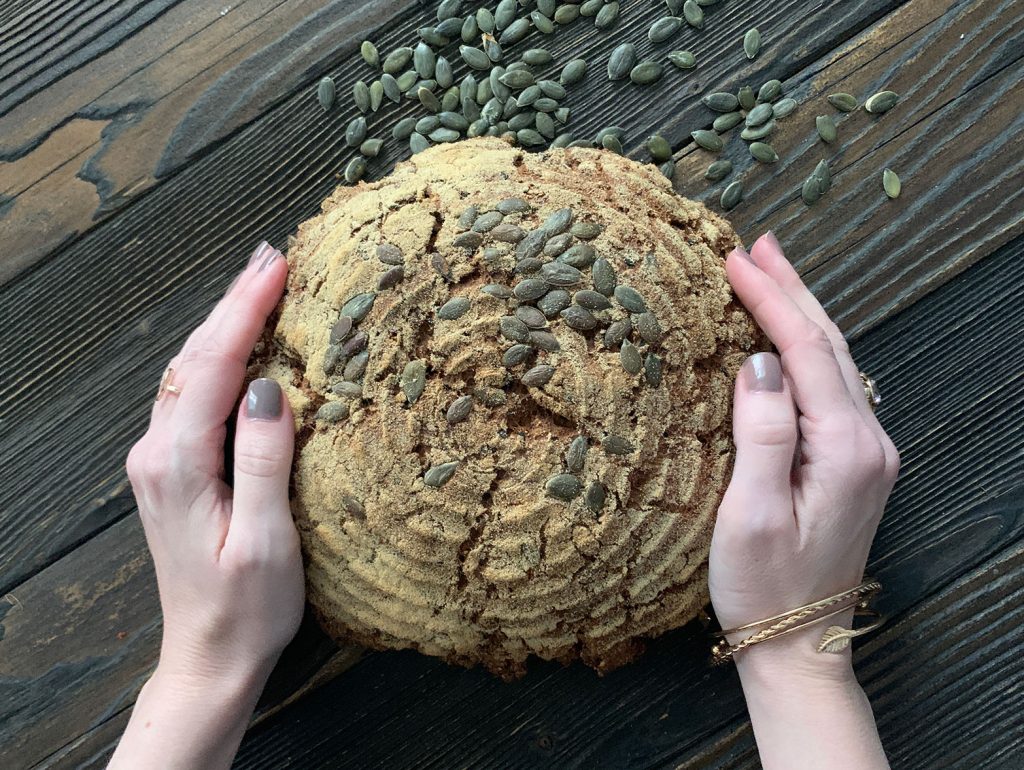
The smell of freshly baked bread is beguiling and has also led to bread from the supermarket becoming a common alternative. An alternative to the valuable craft of baking. The last few years and the pandemic in particular have taken the bakery trade to another level.
Many bakeries have mastered the old craft or are returning to it. The end consumer is once again placing value on origin and freshness. We want to know what’s inside, where the ingredients come from. Quality, sustainability, but also compatibility and wholesomeness have become important to us.
Cereals, vegetables, fruit, meat, eggs and dairy products. Organic food is important to us. Organic means that no genetic engineering, fertilizers or chemical pesticides have been used on the grain. At the same time, organic stands for sustainability and environmental protection. It therefore stands to reason that our daily bread should also be of organic quality. Many bakeries have jumped on this bandwagon and the Bäckerei Sorger in Graz, which has been relying on traditional craftsmanship since 1688, has long recognized the trend towards organic & regional and offers a wide range of products whose raw materials are produced sustainably.
Gluten intolerance or coeliac disease is a well-known phenomenon of our time. The body reacts allergically to the gluten in wheat, rye or spelt. Even without intolerance, people are thinking more about their diet and eliminating gluten-containing grains from their diet.
The alternatives include buckwheat, millet, rice, amaranth and quinoa. But do gluten-free breads taste good? The cult bakery Joseph Brot in Vienna is aware of the problem that gluten-free bread usually cannot keep up with classic sourdough bread, so they have developed a gluten-free organic sourdough bread that comes highly recommended.
Without everything please - that's how the different needs of our time feel. Bread is almost a natural principle. Because classic sourdough bread does not need yeast. It is naturally lactose-free, as it contains no dairy products, and vegan - because bread made from flour, water, sourdough and salt is naturally vegan. In this way, traditional recipes fulfill modern, vegan nutritional principles. Lactose intolerance or intolerance to yeast is also no problem. The selection of breads for these dietary principles and intolerances is therefore more varied than you might think and is increasingly in demand due to the growing number of people who follow a vegan diet.
Shopping at the weekly market, at the farm or at the bakery quickly leads to the atmosphere of the production site or the people behind it, talking, smelling and tasting leading to participation in a baking workshop or lengthy research on the Internet. The result is a self-experiment. Individuality is more important than ever. According to your own preferences and for the special needs of intolerances and allergies. Only what you love goes into the bread you bake yourself. The desire to bake our own bread also satisfies our need to have a direct relationship with food, to work with our hands and to create a balance to our often digital everyday lives.

Organic is not a label – it’s an attitude. In Falkenstein, Lower Austria, the Pesau winery practices organic farming as a generational contract: for the soil, for the landscape, for the wine. A conversation with Andreas and Georg Pesau about living origin, sustainable craftsmanship and the courage not to bow to every trend.
Summer tourism in Austria is experiencing an upswing – but not without challenges. Between geopolitical uncertainty, climatic changes and changing guest needs, the industry has to reinvent itself. Why “coolcation”, intentional travel and retreat offers will make the difference in the future – and how a hotel on the Arlberg is already serving as a role model.
Barbecuing remains the Austrians’ favorite discipline, as the latest barbecue study 2025 shows. The younger generation in particular is rediscovering the grill for themselves: trend-conscious, internationally inspired and with a focus on taste, quality and sustainability. Read on to find out which barbecue trends will be particularly popular in 2025 and what restaurateurs can take away from them.


The smell of freshly baked bread is beguiling and has also led to bread from the supermarket becoming a common alternative. An alternative to the valuable craft of baking. The last few years and the pandemic in particular have taken the bakery trade to another level.
Many bakeries have mastered the old craft or are returning to it. The end consumer is once again placing value on origin and freshness. We want to know what’s inside, where the ingredients come from. Quality, sustainability, but also compatibility and wholesomeness have become important to us.